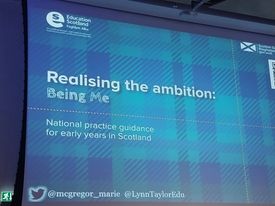Simon Archard EECERA Blog
-
Highlighted
Day 2
A busy day that can leave you quite weary after taking in so much information and presentation!
Sensory overload in a way.... this conference during the sessions sections run about 10-15 streams at once. The challenge is to pick the ones of interest and value. The ones I saw today met that brief. An international conference by its very nature offers comparisons between countries and it is always very interesting to hear the uniqueness and similarities between Aotearoa New Zealand. To be honest many of the issues and challenges we have identified are shared in many countries!!
Click on the link below to access today' programme
Poster Presentations
One common practice at many larger conferences is to offer poster presentations for delegates to share. There is allocated periods where they will be with their posters and other delegates can go around and discuss the topics. This is just another format for sharing research and engaging in networking and exchange. Here are a sample that range in areas from child development, professionalism in ECE and issues such as gender politics and impacts of trauma, particularly at this conference effects of Covid-19 and responses to it. International comparison here is very useful.. Often the posters are designed as a research inquiry setting out the research projects protocols including inquiry questions, data generation, findings and discussion. Below are a selection of the poster presentations.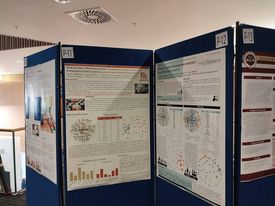
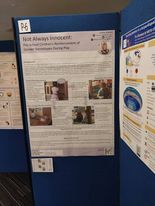
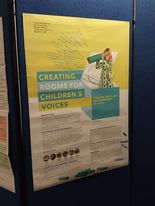
Key Note Presentation
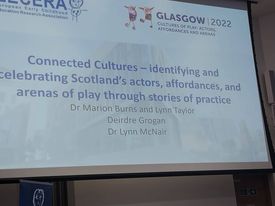
This presentation provided the context and overview of the new Scottish curriculum (2020) Recognising the ambition(RTA). The tartan woven cover acknowledges the holistic woven nature of learning that Te Whaariki reflects and the presenters attributed the woven tartan to Te Whaariki's woven mat. Critical requirements for the success of RTA echoes our situation and education worldwide. For successful learning there is the need for quality practitioners who are skilled and knowledgeable, quality environments that are flexible and responsive and quality practices that include evidence and research based understandings of what works for children. In times of economic rationing , corporatism and Neo- liberal education agendas, the curriculum, similar to ours, face a challenging place meet its aspirations.
